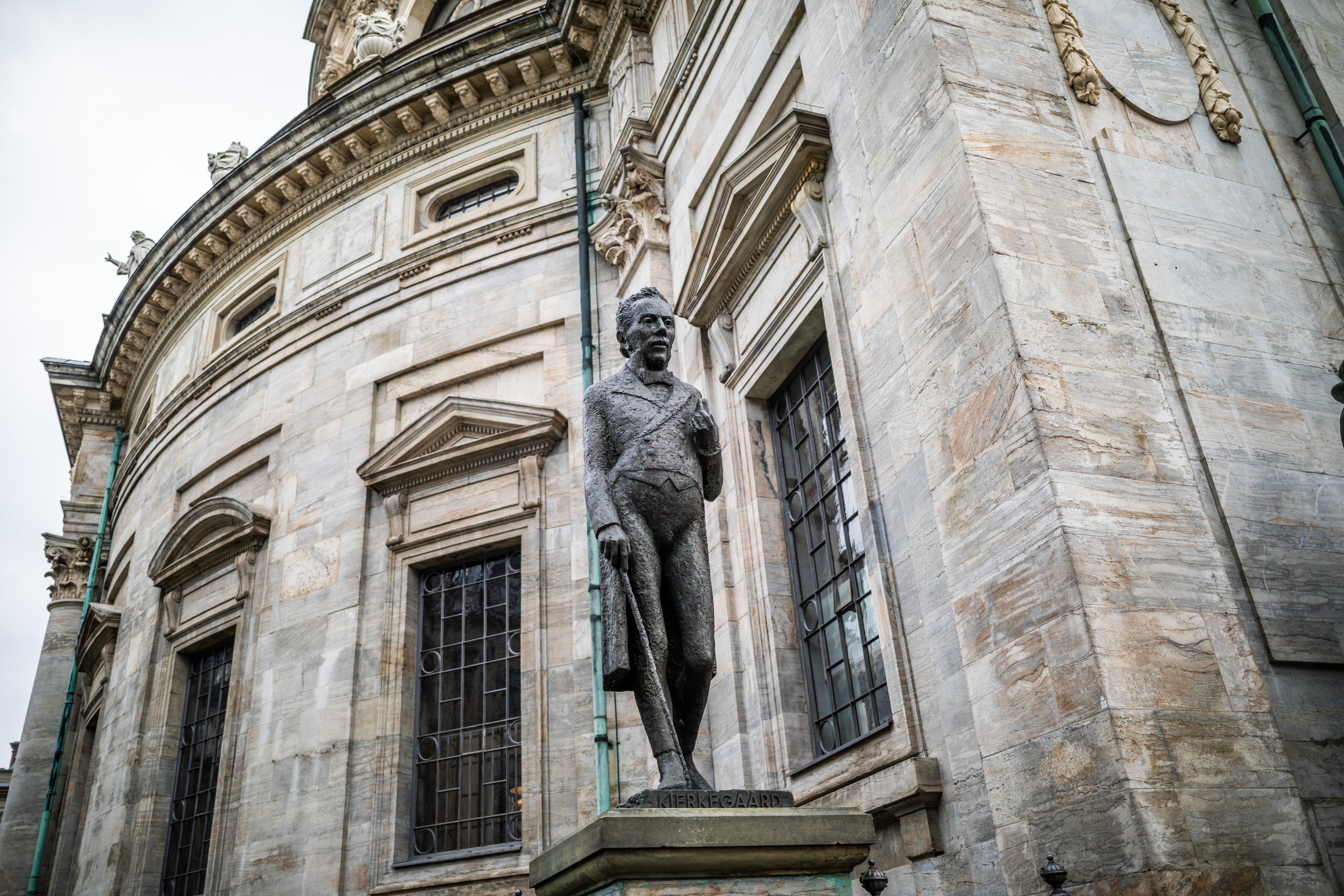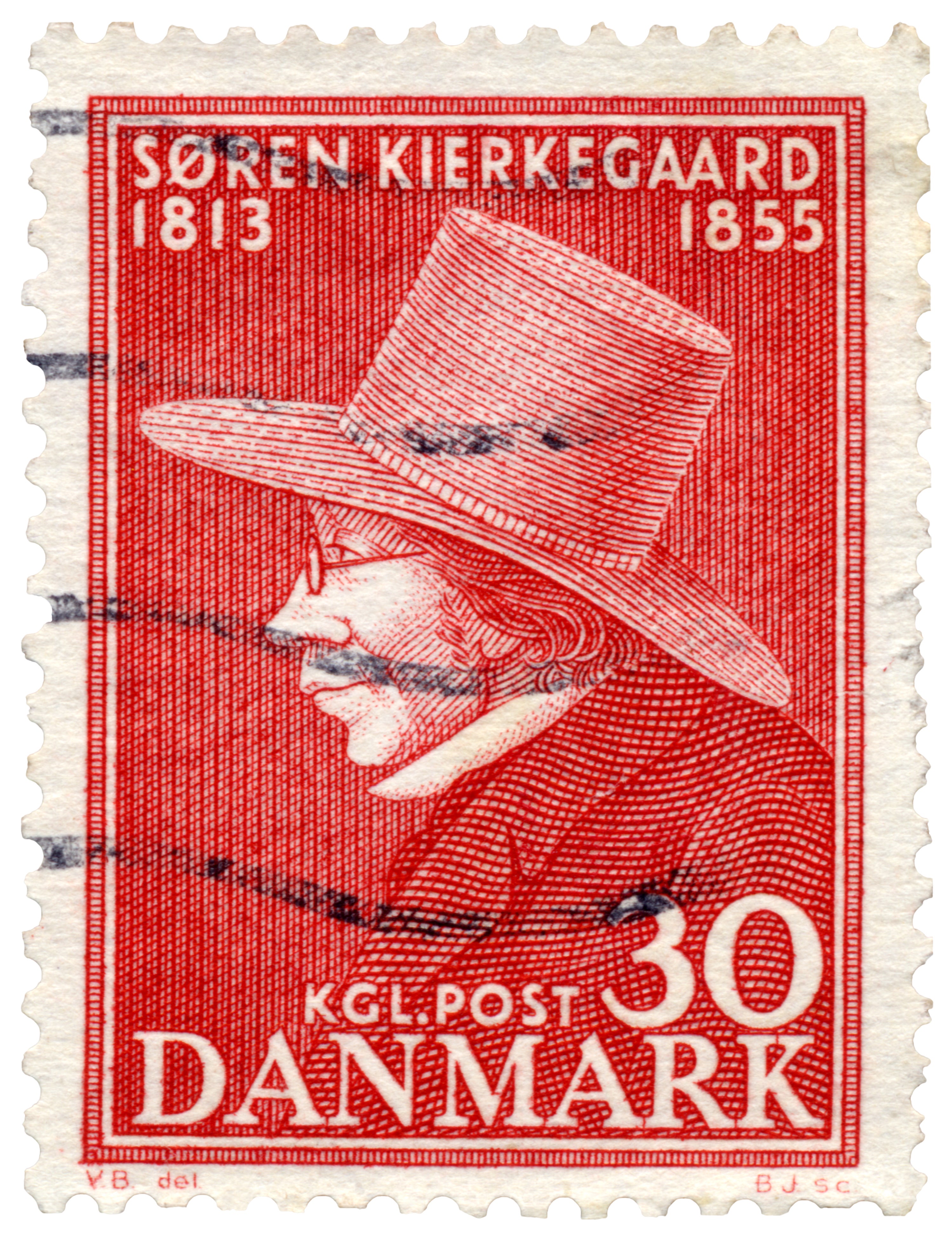Soren Kierkegaard: The first existentialist
While Kierkegaard’s life appears unremarkable, in truth it was far more complex and was crucial to his existentialist philosophy

Soren Kierkegaard (1813–55) is generally recognised as the first existentialist philosopher, but unlike many other existentialists, there is a strong theological vein running through his philosophy.
Kierkegaard’s life was in many ways a quiet one – he only ever left his native Denmark on three occasions, and his leisure time was spent mainly visiting the theatre and walking in Copenhagen – yet it is not possible to appreciate his work properly without knowing something about his biography. Fortunately for us, Kierkegaard kept voluminous journals from the age of 21, which help us to understand how his life and philosophy connect together.
He was born on 5 May 1813 in Copenhagen, and was the youngest child of Michael Kierkegaard, an affluent Danish businessman, and Ane Sorensdatter Lund, the one-time maid of his father’s first wife. His father, the most significant figure of his youth, was a deeply religious man who was committed to a particularly pious form of Lutheranism, and was racked with chronic anxiety and guilt. Some commentators locate the source of these feelings in an incident from his childhood where he had cursed God from the top of a hill after he had become exhausted and cold while tending sheep. Others point to the possibility that he impregnated his second wife before he married her. Whatever the truth of the matter, he passed on his pessimistic and gloomy religious outlook to his son, who later described his upbringing as “insane” and wrote in a journal entry that he had come into the world as the result of a “crime”.
The sense of foreboding which permeated Kierkegaard’s early years was compounded by the premature deaths of his mother and five of his brothers and sisters. It was his father’s belief that this was a sign of divine retribution; indeed, he did not expect any of his children to survive beyond the age of 34, and with the exceptions of Soren and Peter, his eldest son, he was proved right.
Given this background, Kierkegaard’s education was surprisingly normal. He attended a celebrated private school – Borgedydskolen – where he was lonely, aloof and intellectually the superior of his classmates. Then, at the age of 17, he went to the University of Copenhagen with the aim of studying theology. This didn’t quite go to plan. There followed a brief period of what passed for teenage rebellion in 19th-century Denmark. At university, Kierkegaard became more interested in philosophy and literature than theology; and he adopted the lifestyle of a party animal, drinking, smoking and running up debts which his father then had to settle.
Ethics and aesthetics
However, in 1838 his father died, and this seems to have brought an end to Kierkegaard’s career as a bon vivant. He turned his attention back to his theological studies, and two years later gained his master’s degree. It was at this time that he became involved with Regine Olsen in the only real love affair of his life. As is well documented in his journals, he proposed to her, immediately regretted it, spent a year equivocating, and eventually broke off the engagement in 1841. The reasons for his behaviour are not entirely clear, but it seems that he believed his melancholic temperament was unsuited to marriage, that he was intellectually incompatible with her, and that his vocation as a writer meant that he could not commit himself to marriage.
The religious sphere is constituted by a ‘leap of faith’, made in ‘fear and trembling’, which takes it outside the domain of rationality
It is clear that the affair profoundly affected him. It crops up time and again in his journals, and also appears, thinly disguised, in his philosophical works. For example, he uses parts of Either/Or, one of his first major publications, to work through the various issues which motivated his decision to break with Regine. Similarly, another early work, Repetition, tells the story of a young man unable to marry the woman he loves because he fears the ethical commitment marriage requires. Of course, there is more to these works than merely the effort to exorcise a few psychological demons; they also have serious philosophical points to make.
In Either/Or, he sets out two modes of existence by which people might live their lives. The first, the aesthetic mode, which is articulated in the papers and letters of a person called “A”. is hedonistic in character, emphasising the importance of immediate gratification and living in the moment. The ethical mode, in contrast, is built on duty and obligation. It is conveyed in two letters to “A” that analyse and criticise his motives and prospects, and suggest that in order to achieve fulfilment he should commit himself to the kinds of continuous projects which would constitute an ethical life. Kierkegaard’s own view about the right choice here was disguised by his use of unusual narrative techniques and multiple pseudonyms. However, he quickly came to the view that neither the aesthetic nor the ethical mode were adequate; rather, there existed a third mode of existence, the religious sphere, where humans might find true freedom and fulfilment.
The leap of faith
The religious sphere is constituted by a “leap of faith’”, made in “fear and trembling”, which takes it outside the domain of rationality. The Christian’s worship of the God-man Jesus, who is both temporal and eternal, is necessarily paradoxical. It is simply not possible to appeal to rational argument or empirical “evidence” to justify such a belief; all that is available is passionate commitment. In his book Fear and Trembling, Kierkegaard spells out what this might mean for ethics by looking at the biblical story of Abraham and Isaac.

In Genesis, the first book of the Bible, God commands Abraham to kill his son Isaac. According to Kierkegaard, obeying this instruction requires behaviour which is completely outside the domain of normal morals; it necessitates a suspension of the ethical in the service of a higher telos (goal). He illustrates this by comparing the situation of Abraham to that of a “tragic hero”. To take a modern example, consider the following scenario: A military commander knows that if she wants to prevent the destruction of a city, then she must send a battalion of her soldiers to their certain deaths; the battalion includes among its number her son. This constitutes a very difficult moral dilemma, but it lends itself to rational discussion; whatever course of action the commander chooses, she will be able to offer a justification for it which other people will understand. This is not the case with Abraham. He must simply follow a command, which comes to him from above, that will have a consequence that is absolutely unthinkable in terms of normal moral discourse. Not only can he not justify his actions to other people, he cannot even tell himself a story to explain why it is required of him. All that counts is his passionate commitment to a subjective, felt relationship with God.
Religious faith, then, is not an easy option. Indeed, according to Kierkegaard, proper religious faith can only be achieved with great difficulty. So why choose it? Why not remain wedded to the aesthetic and ethical modes of existence? The answer is that it is only by religious faith that individuals can avoid despair and find their true selves in the freedom which, paradoxically, dependence upon a transcendent being brings.
In emphasising the irrational and subjective dimensions of the religious mode of existence, Kierkegaard is also making a wider point about the futility of attempts to achieve objective knowledge of the totality of human thought and experience by the means of a rational, logical, systematic, metaphysical framework. His particular target here is Hegelianism, which, in the middle part of the 19th-century, was the dominant philosophical approach in Denmark. In its totalising imperative, Hegelianism is necessarily flawed; for example, it aims to make God and the Christian faith transparent to reason, whereas in fact they remain necessarily outside the domain of rational understanding.
This also ties in with the unusual way in which Kierkegaard presents his arguments. Nearly all of his important philosophical works were published under a pseudonym. They also make heavy use of irony, satire and humour to make their points. This was in the service of a method Kierkegaard called “indirect communication”. The idea was to deprive his readers of the comforts of authorial authority, thereby compelling them to make their own judgements about where they stood on particular issues and arguments. Kierkegaard drew a link here with the way that Socrates encouraged his interlocutors to think for themselves by undermining their standard responses to the questions he asked. This method is driven by his ongoing commitment to the importance of individual choice and responsibility.

Kierkegaard always recognised that his work would not find favour while he was alive; indeed, he predicted that it would only be in the 20th century that the significance of his writings would be appreciated. He was largely right. The first book written about him was not published until 1877, 22 years after his death at the age of 42; and although he became well-known in Germany in the early part of the 20th century, it wasn’t really until the period between the two world wars that he became considered to be a major intellectual figure.
Obviously, the emergence of existentialism had a lot to do with this, because the themes Kierkegaard examined in his work are similar to those which were explored by philosophers like Heidegger and Sartre. Particularly, his emphasis on the importance of individual freedom and the responsibilities and burdens which it brings, is a thread which runs through nearly all existentialist thought.
Of course, not everybody has good things to say about Kierkegaard. There is, for example, the suspicion that the core of irrationality which lies at the heart of his philosophy is all too easily transfigured into a kind of nihilism, or even fascism. After all, as Voltaire made only too clear, many terrible things have been justified on the basis of appeals to faith (and, indeed, Kierkegaard himself had some pretty reactionary social views). Nevertheless, his importance as a philosopher is without question; by insisting that individuals and subjectivity, freedom and passion, are important, he helped to bring philosophy down from the clouds, where it had been in danger of floating off on a Hegelian wind.
Major works
Either/Or (1843)
Sets out a view of two modes of life, the aesthetic and the ethical. The aesthetic is hedonistic in character, emphasising the importance of immediate gratification and living in the moment. The ethical mode, in contrast, is built on duty and obligation. Kierkegaard came to the view that neither mode of life was satisfactory.
Repetition (1843)
This work tells the story of a young man unable to marry the woman he loves, since he fears the ethical commitment which marriage requires. Clearly, influenced by Kierkegaard’s doomed affair with Regine Olson.
Fear and Trembling (1843)
An analysis of the conflict between the demands of ethics and religion, strikingly illustrated by the story of Abraham, required by God to kill his son. Kierkegaard argues that to obey this instruction requires behaviour which is completely outside the domain of normal morals; it necessitates a suspension of the ethical in the service of a higher telos (goal).
The Concept of Anxiety (1844)
This work focuses on the pervasiveness of anxiety in the stage of life which precedes religious faith. It makes the claim that anxiety is linked to an awareness of human freedom, the inevitability of sin and the requirement of radical choice.




Join our commenting forum
Join thought-provoking conversations, follow other Independent readers and see their replies
Comments